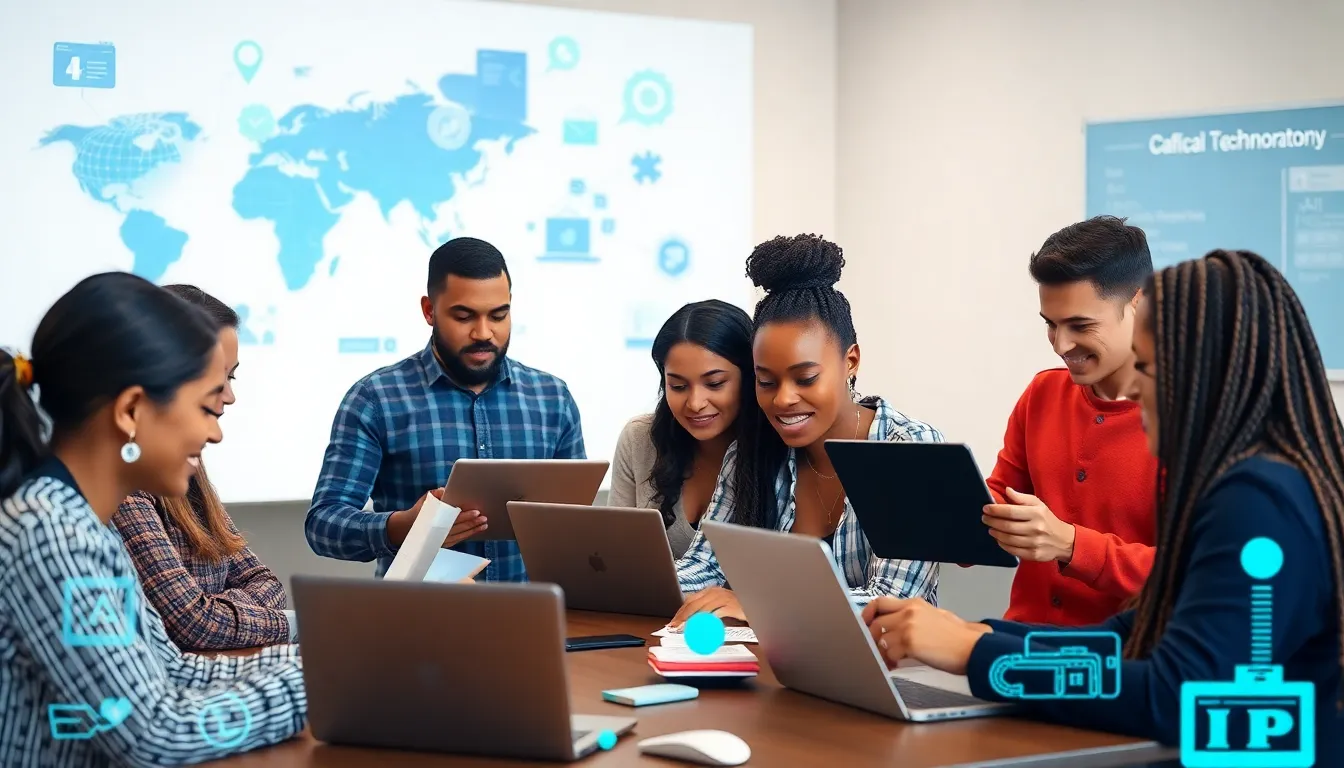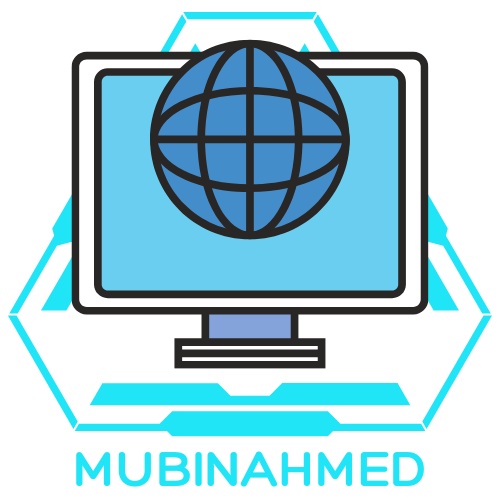In a world where tech often feels like a double-edged sword, Microsoft is stepping up to wield it for good. With a mission to empower every person and organization on the planet, they’re not just crunching numbers and coding apps; they’re tackling some of society’s biggest challenges. From environmental sustainability to education access, Microsoft’s innovative solutions are like the superhero cape we didn’t know we needed.
Table of Contents
ToggleOverview of Microsoft Tech for Social Impact
Microsoft leverages technology to drive positive social change globally. The company focuses on empowering communities through various innovative solutions. One prominent initiative, the Microsoft AI for Good program, uses artificial intelligence to address pressing issues like disaster response and environmental conservation. Access to education also significantly benefits from Microsoft’s academic partnerships that provide tools and resources for students and educators.
Through the Microsoft Sustainability Calculator, organizations can track their carbon footprint and make informed decisions for greener practices. The tool encourages businesses to actively engage in their environmental responsibilities while enhancing transparency and accountability. Notably, the cloud computing capabilities provided by Azure support nonprofits with fewer resources, enabling them to scale their missions efficiently.
Partners in the nonprofit sector gain vital technical support through Microsoft’s Corporate Social Responsibility (CSR) initiatives. These programs offer training, funding, and access to technology that can transform operations. Additionally, Microsoft’s Community Programs focus on digital skills training, preparing underserved populations for a digital workforce.
Engagement with social entrepreneurs underscores Microsoft’s commitment to fostering innovation. Collaborations with organizations like the United Nations help drive projects aimed at creating social equity and economic opportunities. Tech accessibility remains a priority for Microsoft as they address digital divides, ensuring everyone has the tools needed for success.
These efforts exemplify Microsoft’s holistic approach to social impact. The technology giant aligns its resources with community needs, using its influence to champion positive change across multiple sectors. Through sustained efforts, Microsoft sets a leading example in how businesses can contribute to societal betterment.
Key Initiatives and Programs

Microsoft’s initiatives focus on leveraging technology for societal advancement. They prioritize solutions that address critical challenges through innovative programs.
AI for Good
AI for Good plays a central role in Microsoft’s mission. This initiative uses artificial intelligence to enhance disaster response capabilities and promote environmental sustainability. Innovative projects within this program tackle various societal issues, from predicting natural disasters to optimizing resource usage. Additionally, partnerships with organizations leverage AI tools, enabling greater effectiveness in humanitarian efforts. Microsoft’s commitment to ethical AI principles ensures responsible development and deployment across projects.
Digital Skills Training
Digital Skills Training represents another cornerstone of Microsoft’s strategy for social impact. This program targets underserved communities, equipping individuals with crucial digital competencies. Training sessions focus on practical skills, such as using cloud computing and data analysis. Participants benefit from hands-on experiences that prepare them for today’s job market. Collaborations with local organizations enhance reach and impact, ensuring access to training in diverse regions. Microsoft’s dedication to closing the digital divide fosters economic opportunities for vulnerable populations.
Case Studies of Impact
Microsoft’s technology fosters transformative change across various sectors. Notable examples illustrate the effectiveness of these innovations.
Health Sector Innovations
Healthcare organizations leverage Microsoft solutions to enhance patient care and streamline operations. Telehealth platforms enabled by Microsoft Azure ensure remote consultations are accessible, increasing patient engagement. Data analytics tools provide insights for predictive health outcomes, enabling healthcare professionals to make informed decisions. Utilizing AI advancements, healthcare systems proactively manage resources during emergencies. Collaborations with organizations like the World Health Organization facilitate data sharing to tackle global health crises efficiently.
Education and Workforce Development
In education, Microsoft equips institutions with tools that personalize learning experiences. Tools such as Microsoft Teams and OneNote foster collaboration among students and educators, enhancing engagement. Partnerships with educational organizations strengthen digital literacy programs, ensuring students acquire necessary skills. Workforce development initiatives empower individuals through access to training in emerging technologies, including data science and cloud computing. The program’s alignment with industry standards equips graduates with employable skills, maximizing job readiness.
Challenges and Limitations
Implementing Microsoft technologies for social impact faces various challenges. Limited access to digital resources in underserved communities hampers the effectiveness of programs like the Digital Skills Training. Many individuals lack affordable internet or devices, restricting participation in training initiatives.
Cultural barriers also pose significant obstacles. Resistance to new technologies may be prevalent in certain regions, making it difficult to promote Microsoft solutions. Changing perceptions and increasing digital literacy requires tailored educational approaches.
Additionally, funding limitations affect the sustainability of social impact initiatives. Nonprofits often rely on grants and donations, which can vary year-to-year. Without consistent financial support, Microsoft’s partnerships may struggle to achieve long-term goals.
Competing technologies introduce another layer of complexity. Emerging platforms may offer similar benefits, leading organizations to choose alternatives over Microsoft solutions. Staying ahead in innovation remains essential for Microsoft to maintain its competitive edge in the sector.
Ethical considerations present another challenge. Balancing the use of artificial intelligence with privacy concerns is crucial. Transparency in AI applications becomes necessary to ensure trust among users and stakeholders.
Monitoring and evaluating the impact of initiatives also pose difficulties. Assessing success can be subjective, and metrics may not capture the true extent of change achieved. Establishing clear benchmarks and methodologies enhances accountability.
Finally, scalability of solutions is vital. While cloud services like Azure support nonprofits, different organizations have varying needs and capacities. Crafting adaptable solutions allows Microsoft to effectively address diverse challenges faced by communities globally.
Future Directions and Opportunities
Microsoft’s focus on future opportunities emphasizes its commitment to continuous innovation for social impact. Investment in emerging technologies like quantum computing and machine learning enhances capabilities to solve complex societal issues. Through the AI for Good program, partnerships expand to include more communities, enabling broader applications of AI in disaster response and environmental sustainability.
Exploration of innovative funding models presents additional paths for supporting nonprofit efforts. Microsoft encourages collaboration with social innovators, aiming to create scalable solutions that address social equity. Engaging youth through educational programs fosters digital literacy and prepares the next generation of leaders.
Integration of sustainability practices remains a priority, with the Microsoft Sustainability Calculator evolving to offer even more insights. Expansion of cloud computing capabilities through Azure provides nonprofits with tools necessary for growth and impact. Working with international organizations, Microsoft further strengthens global initiatives focused on educational access and healthcare improvements.
Research initiatives aim to assess the effects of technology on underserved populations. Highlighting success stories, case studies illustrate how Microsoft’s tools transform communities. Continuous engagement with stakeholders helps identify emerging challenges and opportunities in the social sector.
Commitment to ethical AI practices guides future developments, ensuring technologies are deployed responsibly. Empowerment of local organizations paves the way for tailored solutions that meet specific community needs. Microsoft’s holistic approach positions it as a leader in leveraging technology for societal betterment, setting a precedent for corporate responsibility in addressing global challenges.
Microsoft’s dedication to social impact through technology is reshaping how organizations address critical global challenges. By harnessing the power of AI and cloud computing, it empowers nonprofits and communities to create meaningful change. The focus on sustainability and education illustrates a commitment to fostering a better future for all.
As Microsoft continues to innovate and expand its initiatives, the potential for transformative impact grows. The company’s efforts in ethical AI and community engagement set a benchmark for corporate responsibility. With a clear vision for the future, Microsoft is not just a tech leader; it’s a catalyst for social equity and positive societal change.




